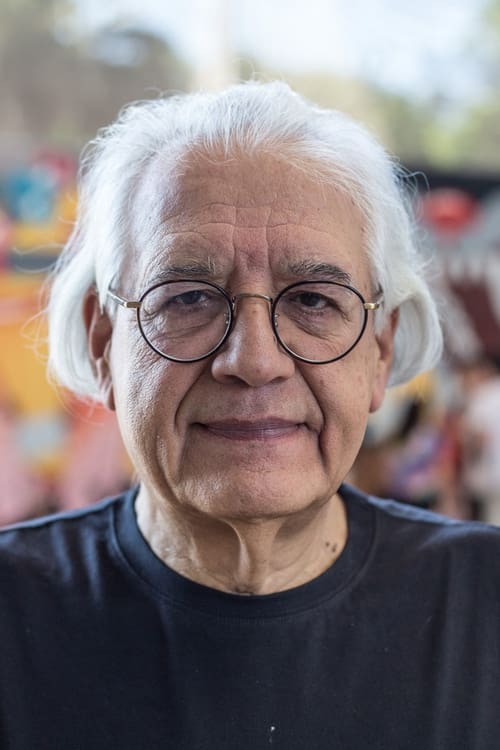
Self
Documentário histórico da participação do governo militar do Brasil junto com a CIA e o Departamento de Estado dos EUA, no golpe militar que derrubou o presidente Salvador Allende no Chile. Com documentação confidencial inédita, o filme mostra os antecedentes e os bastidores do dia 11 setembro de 1973, e a ditadura do general Pinochet que durou 17 anos.
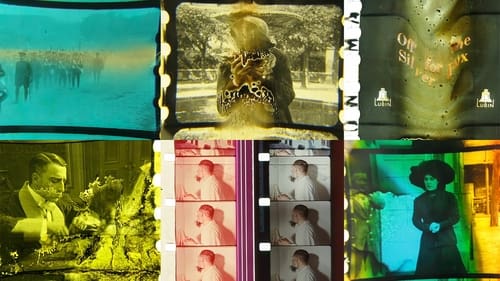
Self
Por que ainda somos capazes, hoje, de assistir a imagens que foram capturadas há mais de 125 anos? À medida que entramos na era digital, o patrimônio audiovisual parece ser um fato seguro e óbvio. No entanto, muito do cinema e da nossa história filmada já se perdeu para sempre. Arquivistas, técnicos e cineastas de diferentes partes do mundo explicam o que é a preservação audiovisual e contam o porquê ela é necessária. O documentário é uma homenagem a todos esses profissionais e ao seu importante trabalho.
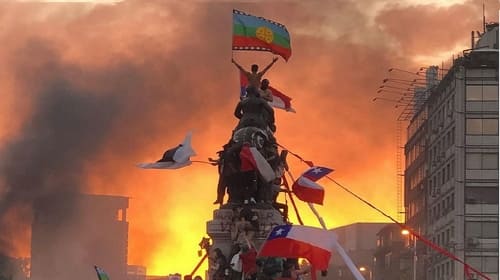
Self
“Outubro de 2019, uma revolução inesperada, uma explosão social. Um milhão e meio de pessoas manifestaram-se nas ruas de Santiago por mais democracia, uma vida mais digna, uma melhor educação, um melhor sistema de saúde e uma nova Constituição. O Chile tinha recuperado sua memória. O acontecimento de que eu estava à espera desde as minhas lutas estudantis em 1973 e que finalmente se materializou.” Patricio Guzmán

Writer
“Outubro de 2019, uma revolução inesperada, uma explosão social. Um milhão e meio de pessoas manifestaram-se nas ruas de Santiago por mais democracia, uma vida mais digna, uma melhor educação, um melhor sistema de saúde e uma nova Constituição. O Chile tinha recuperado sua memória. O acontecimento de que eu estava à espera desde as minhas lutas estudantis em 1973 e que finalmente se materializou.” Patricio Guzmán

Director
“Outubro de 2019, uma revolução inesperada, uma explosão social. Um milhão e meio de pessoas manifestaram-se nas ruas de Santiago por mais democracia, uma vida mais digna, uma melhor educação, um melhor sistema de saúde e uma nova Constituição. O Chile tinha recuperado sua memória. O acontecimento de que eu estava à espera desde as minhas lutas estudantis em 1973 e que finalmente se materializou.” Patricio Guzmán

Himself
O filme é uma autobiografia do diretor Silvio Tendler, que completou 70 anos, e uma análise dos avanços e retrocessos do mundo que cerca o artista. O documentário retrata o jovem que viveu em autoexílio no Chile, nos anos 1970, onde vivenciou o sonho do socialismo com liberdade; que estudou cinema em Paris; esteve em Portugal na Revolução dos Cravos; e voltou ao Brasil, na época em que o país começava o processo de redemocratização. Tendler também esteve em Cuba, na União Soviética e na Alemanha durante a Guerra Fria, registrando mundos que não existem mais.

Screenplay
No Chile, quando o sol nasce, tem de subir colinas e montes até atingir o topo da Cordilheira dos Andes. No Chile, a cordilheira é tudo. Mas para os cidadãos chilenos, é um território desconhecido. Depois de ter ido para Norte em Nostalgia da Luz e para Sul em O Botão de Nácar, Guzmán quis filmar de perto esta imensa coluna vertebral para explorar os seus mistérios, revelando poderosas informações da história do passado e do presente chileno.

Director
No Chile, quando o sol nasce, tem de subir colinas e montes até atingir o topo da Cordilheira dos Andes. No Chile, a cordilheira é tudo. Mas para os cidadãos chilenos, é um território desconhecido. Depois de ter ido para Norte em Nostalgia da Luz e para Sul em O Botão de Nácar, Guzmán quis filmar de perto esta imensa coluna vertebral para explorar os seus mistérios, revelando poderosas informações da história do passado e do presente chileno.

Self - Filmmaker
After the coup d'État of the Democratic government of Allende, the embassy of Italy in Santiago played a major role in helping the opposers of the regime, and extradited many of them to Italy.

Editor
O oceano contém a história de toda a humanidade. No mar estão as vozes da Terra e de todo o espaço. A água, fronteira mais longa do Chile, também esconde o segredo de dois misteriosos botões encontrados no fundo do mar. Com mais de 4 mil km de costa e o maior arquipélago do mundo, o Chile apresenta uma paisagem sobrenatural, com vulcões, montanhas e glaciares. Nessa paisagem estão as vozes da população indígena da Patagônia, dos primeiros navegadores ingleses que chegaram ao país, e também a voz dos presos políticos chilenos. Alguns dizem que a água tem memória. Este filme mostra que ela também tem voz.

Self - Narrator (voice)
O oceano contém a história de toda a humanidade. No mar estão as vozes da Terra e de todo o espaço. A água, fronteira mais longa do Chile, também esconde o segredo de dois misteriosos botões encontrados no fundo do mar. Com mais de 4 mil km de costa e o maior arquipélago do mundo, o Chile apresenta uma paisagem sobrenatural, com vulcões, montanhas e glaciares. Nessa paisagem estão as vozes da população indígena da Patagônia, dos primeiros navegadores ingleses que chegaram ao país, e também a voz dos presos políticos chilenos. Alguns dizem que a água tem memória. Este filme mostra que ela também tem voz.

Writer
O oceano contém a história de toda a humanidade. No mar estão as vozes da Terra e de todo o espaço. A água, fronteira mais longa do Chile, também esconde o segredo de dois misteriosos botões encontrados no fundo do mar. Com mais de 4 mil km de costa e o maior arquipélago do mundo, o Chile apresenta uma paisagem sobrenatural, com vulcões, montanhas e glaciares. Nessa paisagem estão as vozes da população indígena da Patagônia, dos primeiros navegadores ingleses que chegaram ao país, e também a voz dos presos políticos chilenos. Alguns dizem que a água tem memória. Este filme mostra que ela também tem voz.

Director
O oceano contém a história de toda a humanidade. No mar estão as vozes da Terra e de todo o espaço. A água, fronteira mais longa do Chile, também esconde o segredo de dois misteriosos botões encontrados no fundo do mar. Com mais de 4 mil km de costa e o maior arquipélago do mundo, o Chile apresenta uma paisagem sobrenatural, com vulcões, montanhas e glaciares. Nessa paisagem estão as vozes da população indígena da Patagônia, dos primeiros navegadores ingleses que chegaram ao país, e também a voz dos presos políticos chilenos. Alguns dizem que a água tem memória. Este filme mostra que ela também tem voz.

Editor
In Chile's Atacama Desert, astronomers peer deep into the cosmos in search for answers concerning the origins of life. Nearby, a group of women sift through the sand searching for body parts of loved ones, dumped unceremoniously by Pinochet's regime.

Writer
In Chile's Atacama Desert, astronomers peer deep into the cosmos in search for answers concerning the origins of life. Nearby, a group of women sift through the sand searching for body parts of loved ones, dumped unceremoniously by Pinochet's regime.

Director
In Chile's Atacama Desert, astronomers peer deep into the cosmos in search for answers concerning the origins of life. Nearby, a group of women sift through the sand searching for body parts of loved ones, dumped unceremoniously by Pinochet's regime.

Editor
Entrevista não incluída no corte final de "Nostalgia da Luz" com um renomado astrônomo e astrofísico chileno a respeito de eventos cósmicos, como a energia escura, o espaço-tempo e as supernovas.

Screenplay
Entrevista não incluída no corte final de "Nostalgia da Luz" com um renomado astrônomo e astrofísico chileno a respeito de eventos cósmicos, como a energia escura, o espaço-tempo e as supernovas.

Director
Mais uma parte do material não incluído no corte final de "Nostalgia da Luz", agora com entrevistas a homens simples que dedicaram parte de suas vidas a fabricar 'telescópios caseiros', no esforço de alcançar algo do que parece impossível ao ser humano.

Director
María Teresa é uma mulher notável que pratica três atividades aparentemente opostas. Por um lado ela é astrônoma (Prêmio Nacional de Artes), responsável pela descoberta da primeira Anã Marrom, mas ao mesmo tempo é colecionadora de pedras preciosas encontradas no mar (ágatas, aqueles cristais luminosos que trazem as ondas do oceano), além de se dedicar à tapeçaria. É também professora, ensaísta e diretora do Observatório da Universidade do Chile. Este documentário, que reúne um material não incluído em "Nostalgia da Luz", apresenta-nos mais uma personalidade da astronomia chilena que nos revela sua paixão pela vida e pelos detalhes que a formam.

Director
Entrevista não incluída no corte final de "Nostalgia da Luz" com um renomado astrônomo e astrofísico chileno a respeito de eventos cósmicos, como a energia escura, o espaço-tempo e as supernovas.

Director
Entrevista não incluída no corte final de "Nostalgia da Luz" com um engenheiro de um observatório astronômico chileno que explica a importância dos técnicos terrestres nestes postos de observação do universo.

Director
In 2008 Patricio Guzmán carried out a survey to find out the "state of historical memory" in Santiago. To do this, it brings together a small number of historians, psychologists, economists, engineers, lawyers and other members of the Chilean elite. It is a documentary in the form of a report that directly shows the opinions of each participant (including Juan Emilio Cheyre, former commander-in-chief of the armed forces). As expected, the result is controversial.

Himself
From cinema-verite; pioneers Albert Maysles and Joan Churchill to maverick movie makers like Errol Morris, Werner Herzog and Nick Broomfield, the world's best documentarians reflect upon the unique power of their genre. Capturing Reality explores the complex creative process that goes into making non-fiction films. Deftly charting the documentarian's journey, it poses the question: can film capture reality?

Director
My Jules Verne, by director Patricio Guzman, presents modern-day explorers who retrace the paths of some of Jules Verne's intrepid characters. Accompany Hubert Reeves, Laurence de La Ferrière, Hubert Falco and others to the Antarctic, to the centre of the earth, under the seas and into outer space.

Director of Photography
A leftist revolutionary or a reformist democrat? A committed Marxist or a constitutionalist politician? An ethical and moral man or, as Richard Nixon called him, a "son of a bitch"? In SALVADOR ALLENDE, acclaimed Chilean filmmaker Patricio Guzmán (The Battle of Chile and Chile, Obstinate Memory) returns to his native country thirty years after the 1973 military coup that overthrew Chile's Popular Unity government to examine the life of its leader, Salvador Allende, both as a politician and a man.

Self - Narrator (voice)
A leftist revolutionary or a reformist democrat? A committed Marxist or a constitutionalist politician? An ethical and moral man or, as Richard Nixon called him, a "son of a bitch"? In SALVADOR ALLENDE, acclaimed Chilean filmmaker Patricio Guzmán (The Battle of Chile and Chile, Obstinate Memory) returns to his native country thirty years after the 1973 military coup that overthrew Chile's Popular Unity government to examine the life of its leader, Salvador Allende, both as a politician and a man.

Screenplay
A leftist revolutionary or a reformist democrat? A committed Marxist or a constitutionalist politician? An ethical and moral man or, as Richard Nixon called him, a "son of a bitch"? In SALVADOR ALLENDE, acclaimed Chilean filmmaker Patricio Guzmán (The Battle of Chile and Chile, Obstinate Memory) returns to his native country thirty years after the 1973 military coup that overthrew Chile's Popular Unity government to examine the life of its leader, Salvador Allende, both as a politician and a man.

Director
A leftist revolutionary or a reformist democrat? A committed Marxist or a constitutionalist politician? An ethical and moral man or, as Richard Nixon called him, a "son of a bitch"? In SALVADOR ALLENDE, acclaimed Chilean filmmaker Patricio Guzmán (The Battle of Chile and Chile, Obstinate Memory) returns to his native country thirty years after the 1973 military coup that overthrew Chile's Popular Unity government to examine the life of its leader, Salvador Allende, both as a politician and a man.

Sound
A charming & meditative ode to the city of Madrid, where Guzmán studied directing & filmmaking during the 1960s, & escaped to from Chile after the military coup. Travelling through the streets of contemporary Madrid, Guzmán’s essayistic film freely draws inspiration from the landmarks, the music, the people & the culture to evoke experiences, reflections & insights in order to relate the nature of his historical & personal connection to the city..

Director of Photography
A charming & meditative ode to the city of Madrid, where Guzmán studied directing & filmmaking during the 1960s, & escaped to from Chile after the military coup. Travelling through the streets of contemporary Madrid, Guzmán’s essayistic film freely draws inspiration from the landmarks, the music, the people & the culture to evoke experiences, reflections & insights in order to relate the nature of his historical & personal connection to the city..

Screenplay
A charming & meditative ode to the city of Madrid, where Guzmán studied directing & filmmaking during the 1960s, & escaped to from Chile after the military coup. Travelling through the streets of contemporary Madrid, Guzmán’s essayistic film freely draws inspiration from the landmarks, the music, the people & the culture to evoke experiences, reflections & insights in order to relate the nature of his historical & personal connection to the city..

Director
A charming & meditative ode to the city of Madrid, where Guzmán studied directing & filmmaking during the 1960s, & escaped to from Chile after the military coup. Travelling through the streets of contemporary Madrid, Guzmán’s essayistic film freely draws inspiration from the landmarks, the music, the people & the culture to evoke experiences, reflections & insights in order to relate the nature of his historical & personal connection to the city..

Director
True story of the saga that was hoped to be the long-awaited justice brought to bear upon Augosto Pinochet, Chilean dictator from 1973 to 1990. In September 1998, Pinochet flew to London on a pleasure trip but experienced back pain and underwent an operation in the London Clinic. Upon waking, he was arrested by Scotland Yard. Could it be that this was to become the first Latin American dictator to answer for crimes while serving as Head of State? After 500 days of house arrest, he nevertheless eventually returned unscathed to Chile, despite the compelling case built against him before & during this period by a young Spanish prosecutor, Carlos Castresana.

Sound
A passionate fan of Daniel Defoe’s Robinson Crusoe as a 13-year-old boy, Guzmán was delighted to find in his adult years that the story is based on actual events & a real place in the middle of the Pacific Ocean, 700 kilometres from the Chilean coast. This moves him to film & construct a kind of ironic travel journal as he sets out to rediscover the island, all the while in constant play with the fields of history, literature & imagination.

Director of Photography
A passionate fan of Daniel Defoe’s Robinson Crusoe as a 13-year-old boy, Guzmán was delighted to find in his adult years that the story is based on actual events & a real place in the middle of the Pacific Ocean, 700 kilometres from the Chilean coast. This moves him to film & construct a kind of ironic travel journal as he sets out to rediscover the island, all the while in constant play with the fields of history, literature & imagination.

Screenplay
A passionate fan of Daniel Defoe’s Robinson Crusoe as a 13-year-old boy, Guzmán was delighted to find in his adult years that the story is based on actual events & a real place in the middle of the Pacific Ocean, 700 kilometres from the Chilean coast. This moves him to film & construct a kind of ironic travel journal as he sets out to rediscover the island, all the while in constant play with the fields of history, literature & imagination.

Director
A passionate fan of Daniel Defoe’s Robinson Crusoe as a 13-year-old boy, Guzmán was delighted to find in his adult years that the story is based on actual events & a real place in the middle of the Pacific Ocean, 700 kilometres from the Chilean coast. This moves him to film & construct a kind of ironic travel journal as he sets out to rediscover the island, all the while in constant play with the fields of history, literature & imagination.

Self - Narrator (voice)
After decades of fascist rule in Chile, Patricio Guzmán returns to his country to screen his documentary The Battle of Chile.

Director
After decades of fascist rule in Chile, Patricio Guzmán returns to his country to screen his documentary The Battle of Chile.

Screenplay
The Chilean documentary maker enters the small Mexican town of San José de Gracia, marked by its conservative spirit, following the book with which historian Luis González narrated a good part of the town's past and its strong involvement in the Cristero Wars.

Director
The Chilean documentary maker enters the small Mexican town of San José de Gracia, marked by its conservative spirit, following the book with which historian Luis González narrated a good part of the town's past and its strong involvement in the Cristero Wars.

Director
Taking as a guiding theme of religion in Latin America, the film shows the pre-Columbian myths, the arrival of the white man, later syncretism and liberation theology. The main theme is the "popular religion". In Latin America this forms a kind of religious sacred territory where millions of Indians seeking refuge. This is repeated in Brazil, where African religions are another impenetrable territory, which also functions as a stronghold, a refuge.
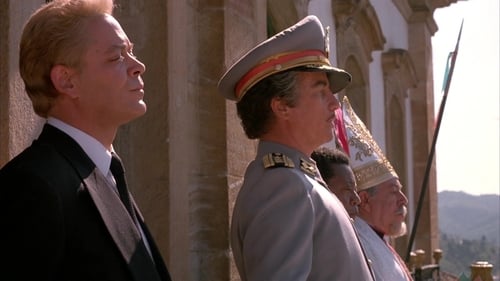
Family Member
A morte repentina de Alphonse Simms, o ditador de um país latino-americano, Parador, faz Roberto Strausmann, o chefe de gabinete, e a polícia nacional "convencerem" um sósia, Jack Noah, que é ator e tinha acabado de filmar no país, para se fazer passar pelo mandatário. Desta forma Strausmann pode governar, usando Noah como fantoche. Porém enganar a namorada do governante, Madonna Mendez, não é uma tarefa tão fácil quanto iludir o povo .

Director
Documentary that explores the role of the Chilean Catholic Church in the fight against Augusto Pinochet’s dictatorial regime, giving great emphasis to the creation of the Vicariate of Solidarity and protests against violations to human rights.

Director
Exiled Chilean director Patricio Guzmán filmed in Cuba and in Venezuela to create this controversial statement on the creation and survival of Latin American culture from the late-15th century to the present. For some viewers, the film will be superficially symbolic and rhetorical, for others, it will be a strong and personal vision of several centuries of history.

Screenplay
Guzmán’s final instalment shifts from covering the actions of Allende’s opponents to those who battled to revive & promote their toppled leader’s vision for a new Chile.

Director
Guzmán’s final instalment shifts from covering the actions of Allende’s opponents to those who battled to revive & promote their toppled leader’s vision for a new Chile.

Screenplay
Chronicles the events immediately surrounding the CIA- supported coup itself.

Director
Chronicles the events immediately surrounding the CIA- supported coup itself.

Screenplay
The chronicle of the political tension in Chile in 1973 and of the violent counter revolution against the democratically elected government of Salvador Allende.

Director
The chronicle of the political tension in Chile in 1973 and of the violent counter revolution against the democratically elected government of Salvador Allende.
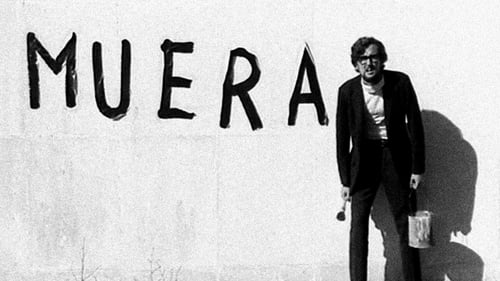
Dialogue
In a country subjected to a cruel dictatorship, a political activist is savagely tortured, unleashing the indignation of certain leftist intellectuals.

Screenplay
In a country subjected to a cruel dictatorship, a political activist is savagely tortured, unleashing the indignation of certain leftist intellectuals.

Director
In a country subjected to a cruel dictatorship, a political activist is savagely tortured, unleashing the indignation of certain leftist intellectuals.

Screenplay
Experimental film production that presents a newscast with a critical perspective of the popular culture transmitted by TV, using collage techniques and juxtaposition of images from newspapers, magazines, advertising, film and television.

Editor
Experimental film production that presents a newscast with a critical perspective of the popular culture transmitted by TV, using collage techniques and juxtaposition of images from newspapers, magazines, advertising, film and television.

Director
Experimental film production that presents a newscast with a critical perspective of the popular culture transmitted by TV, using collage techniques and juxtaposition of images from newspapers, magazines, advertising, film and television.

Director
Animated short that addresses social and personal issues, begins with the prison and prisoners are seen as slaves and gendarmes as the all powerful, in a celebration of the gendarmes the prison burns down and the gendarmes kill the prisoners, one manages to escape and faces the city there is a parallel between a zoo and the prison showing that it is similar, and this character releases the animals. A police chase is seen where the character runs, he enters a dead end street where they meet a bank, a church and other institutions which are compared to a jail, remaining motionless observing that any of their options are similar and it is seen that both society and the police fall on him.
